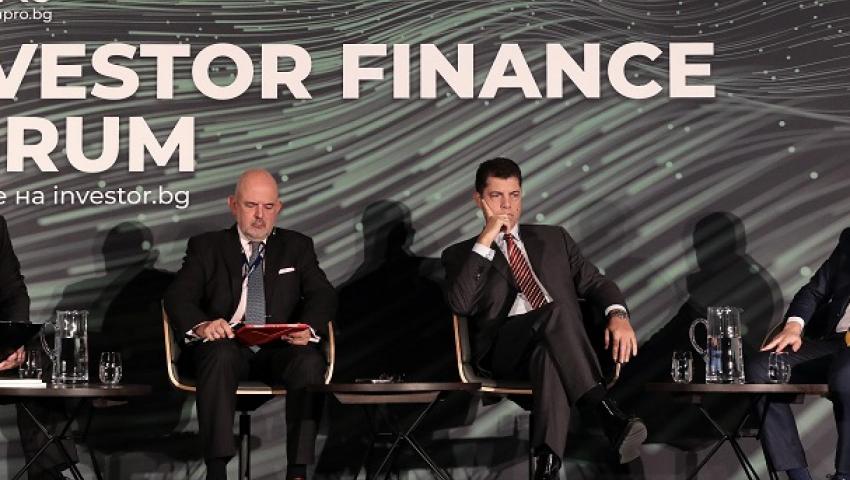Iliya Lingorski: Private investment in innovation crosses Eastern Europe and goes to Asia
Our admission to the OECD will make investors open their portfolios in Bulgaria, he said

Source: BTA
There is no successful way out of a systemic and global crisis in history without massive investments in strategic infrastructure, said Iliya Lingorski, a member of the Board of Directors of the Three Seas Investment Fund, at the opening of the tenth edition of the Investor Finance Forum conference.
In our Three Seas region, the new EU member states have similar development characteristics. The construction of the connecting infrastructure is especially important for the region, because it has 30% of the EU territory, 20 percent of the population, but makes 10 percent of the gross domestic product of the union, Lingorski said.
The Three Seas Investment Fund aims to attract private capital, both local and global, to catch up with older EU members, Lingorski said. In addition to the normal infrastructure, there is also an innovative one, to which not enough attention has been paid so far, the expert pointed out. That is why the Three Seas Initiative is working to create a new mechanism - an innovation fund, which will attract mostly private capital to accelerate investment. To the state capital, which is now the main generator of innovation, we are looking to attract private capital flows, which now jump over us and go to Asia, he said.
Lingorski noted that investors are interested in whether our country is a member of the Organization for Economic Cooperation and Development / OECD /, because, according to him, then their portfolios will be opened. Our other goal is to help local investors, such as pension funds and social investors, participate in infrastructure development and innovation projects. This will also motivate foreign investors to come to the country, Lingorski said.
The news is that Bulgaria is going through a second crisis and we are fine, said Petar Ganev, a senior researcher at the Institute for Market Economics (IME). Historically, this does not happen to us often. We usually collapse, but now we are resisting without cutting social costs and pensions and we are quickly returning to economic recovery, Ganev added. The pandemic crisis has triggered processes such as raising deficits, and without the shock of the pandemic, these changes in fiscal policy would not have been accepted, Ganev added. Europe has sunk more than the world, and now it will grow more slowly than the world. Growth in the EU is stronger this year, but will gradually weaken. For Bulgaria, the forecast is that GDP growth next year will be higher than this year - the reason will be investment growth next year, Ganev added.
In the last two or three years, Bulgaria has been receiving mostly negative signals from foreign investors, apart from the prospect of entering the eurozone, said Milen Velchev, former Finance Minister and CEO of VTB Capital. From the years before the pandemic, there was a showy attitude on the part of the Bulgarian regulatory authorities towards significant investors, such as the case of CEZ, which froze everyone's blood, Velchev said.
Bulgarian politicians have failed in their task of tackling the pandemic and its aftermath, Velchev said. We cannot have the highest mortality rate since the pandemic and expect investors to be optimistic about our country, he added. The introduction of the "green certificate" was correct, but belated. The signals for the need for vaccination were vague and half-baked, he stressed. Velchev suggested that business support go through the obligation of company employees to be vaccinated.
I hope that we are on the verge of forming a parliamentary majority and a government that respects the rule of law. It is necessary to have stability for at least two or three years and a civilized policy on the part of the regulatory bodies towards foreign investors, Velchev added.
